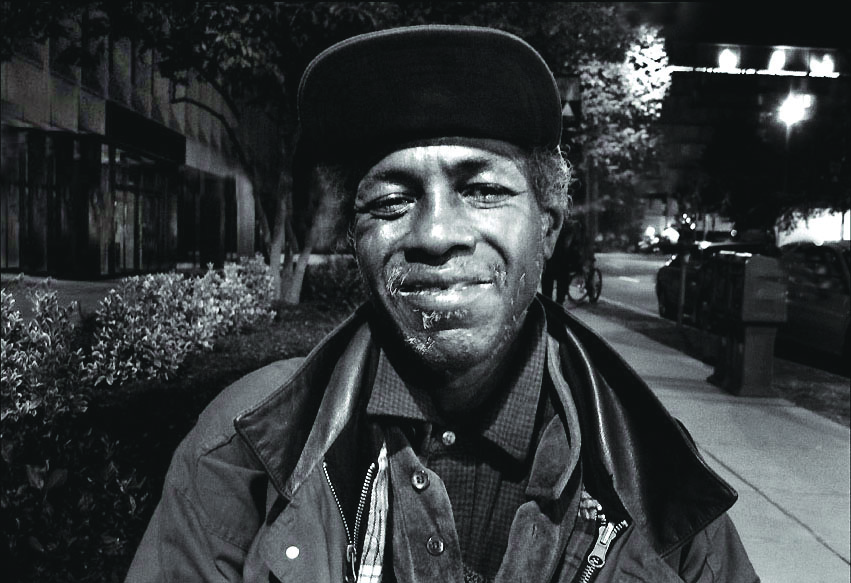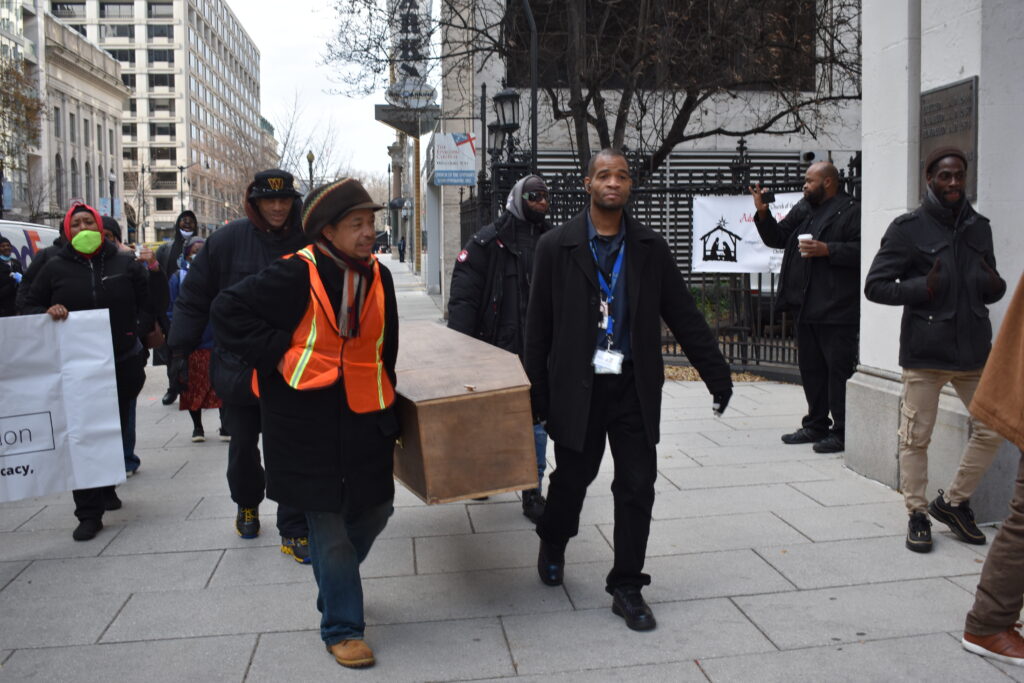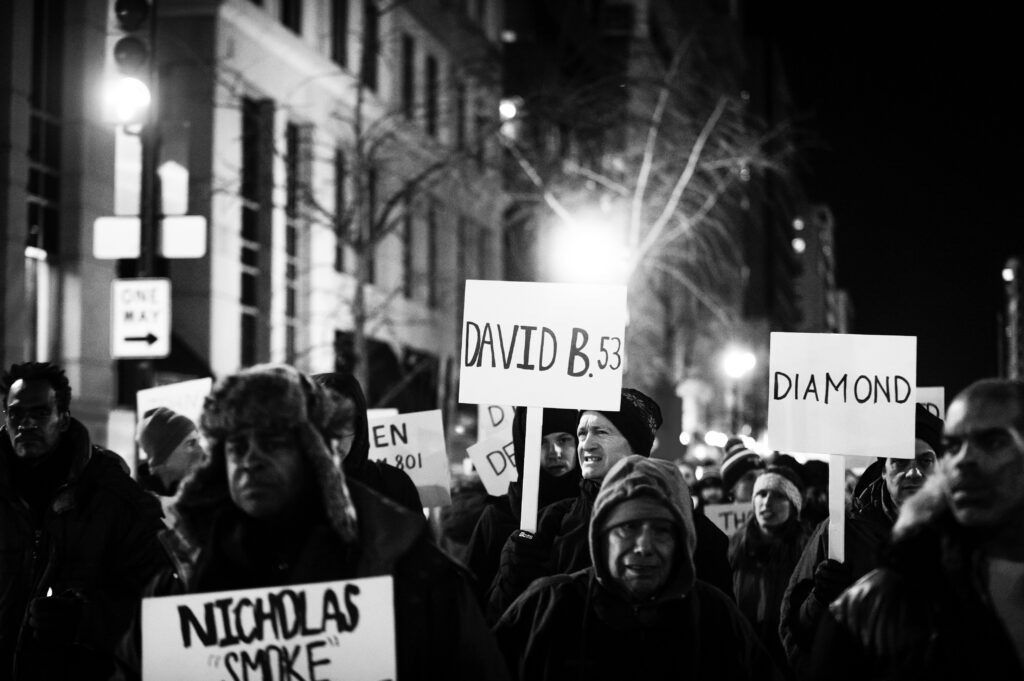Larry Avents could usually be found hanging around in one of the public parks in downtown D.C., chatting up those who would listen and sporting a jean jacket, hat and his social security card strung around his neck. “[He] was the kind of guy that … he just [went] on and on,” said long-time friend Robert in a recent interview. [We talked] about anything. He helped me with social stuff.”
Experiencing homelessness on-and-off, Larry had essentially been living on the streets of D.C. for 20 years. In August of 2016, Larry passed away.
This happened a mere week after his outreach case manager, Rebecca Stewart, had found a housing opportunity for him. However, Stewart was unable to make contact with Larry in that final week before his death. He died never knowing he finally had housing.
“I think he thought the city had given up on him,” Stewart said, through teary eyes, in an interview. “He wasn’t really angry about it anymore, he would just always say things like ‘I’ll never get into housing. I’ve done this a hundred times.’” Larry had been on various housing lists for so long and experienced poor conditions in so many shelters that he had become quietly resolved to the idea that the city had forgotten about him.
Due to limited housing accommodations, overcrowding in shelters and lack of communication, many people like Larry experience long periods on housing waitlists while being given almost no information as to where they stand, according to Stewart.
The severe lack of affordable housing that left Larry with little opportunity to get off the streets is a fate that befalls hundreds of homeless individuals in the D.C. area annually. “He cared deeply about these things,” Stewart said, mentioning Larry’s fascination with housing and economic policy and his tendency to engage others in political conversation at considerably less than ideal times. She remembered how they would be on outings or running errands, and he would choose those moments to ask her how she felt about certain policies or people in politics. If she refused to answer, he went right on to tell her about his own feelings. “Those are some of my funniest memories of him,” she said.
Larry told a Huffington Post contributor in 2003 that he had once been a steward at the Capitol Hill Hyatt, but eventually left due to insufficient pay. Like many others, Larry was also noted for having had his share of hardship, mentioning the cataracts he developed at the young age of five and a battle with alcohol addiction. Ultimately, however, Larry was described by those who knew him, such as his friend Robert, as someone who would help others in any way that he could.
“I’m gonnna miss seeing him.”
The recording of the interview Robert gave about Larry has no image, simply his voice and that of Rebecca Stewart, the only person with which he was willing to talk. “I was very fond of Larry,” he started the conversation. The two had met in the streets and often talked for hours in Farragut Park. Larry had been a good listener and a good friend, according to Robert.
As the recording reaches its end, Stewart’s voice can be heard asking Robert for any last thought he’d like readers of Larry’s memoir to know. There is a long pause, some hesitation and then simply the most honest answer: “I’m gonna miss seeing him.”There is a moment of quiet after this.
“Me too,” Stewart says, her voice heavy with remorse, as the recording comes to an end. “Me too.”








